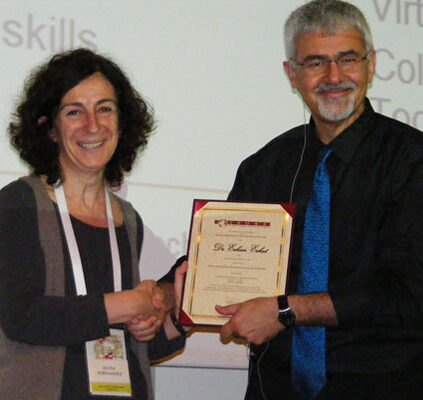Erhan Erkut
Title of Presentation: How to Make OR the Most Liked Course in the Curriculum?
EURO Conference
Vilnius, Lithuania
July 2012
Abstract:
As teachers of OR, many of us would like to think that OR is one of the most valuable topics in university education. However, past experience shows that some of the students in our classrooms may not agree with this. How do we close this perception gap, and attract the best students to OR? This is just another problem, and if we think we are the best-trained problem solvers in the world, we should be able to overcome it easily. Unfortunately, while we may have exceptional training in analytical thinking and quantitative analysis, many of us lack the tools necessary for strategic planning, brand creation, and reputation management. Furthermore, most of us lack formal training in teaching, which makes matters worse.
My colleagues at the University of Alberta and I have experimented with various methods and tools over two decades, and we established that an OR curriculum can be very successful even in a business school – a considerably more challenging environment than an engineering school. The winning recipe includes ingredients such as spreadsheets, real-time modeling (“slow learning”), course management system, web tools, on-line communication, large classes, labs, student assistants, videos, guest speakers, on-line exams, and group projects; all delivered with a heavy emphasis on applications, and with a student-centered pedagogical approach. The results have been very positive; the reputation of the introductory course became “most useful”, many of the best students took our electives, all members of our team won teaching awards, and through our collaboration with the industry we established a know-how transfer unit called Centre for Excellence in Operations.
In this tutorial, I will describe the problem we faced, and our attempts to solve it with examples of what worked and what did not, with an emphasis on what audience members could transfer to their institutions. The focus is not only on making one course popular, but on managing the entire student supply chain, complete with a student club, competitions, conferences, internships, and graduate programs. If you are interested in improving the perception and image of OR in your institution through teaching (and strategic planning), you are welcome to attend this session.
Bio
Prof. Erkut obtained an undergraduate degree from the Faculty of Engineering of Bogazici University in 1980 and a Ph.D from the University of Florida in 1986, both in Industrial Engineering. Between 1985 and 2005, he taught at the University of Alberta’s School of Business, and was a visiting faculty member at the Univ. of Geneva, Ohio State Univ., NIDA (Bangkok), as well as Bogazici and Sabanci Universities. He received nine teaching awards, including the prestigious “INFORMS Teaching of Management Science Practice Award” and Canada’s “3M Teaching Fellowship,” as well as five awards of merit, and four practice awards from the Canadian Operational Research Society.
Prof. Erkut, served as project leader for a number of externally-funded projects, founded an applied research center (Center for Excellence in Operations) at the University of Alberta, was the Founding Editor of INFORMS Transactions on Education, and published over 50 refereed journal articles in journals such as Operations Research, Transportation Science, European Journal of Operational Research, Interfaces, Computers & OR, Risk Analysis, and Geographical Analysis. He served as Dean of the Faculty of Business Administration of Bilkent University between 2005 and 2007, before starting to serve as the Founding Rector of Ozyegin University in 2008.

